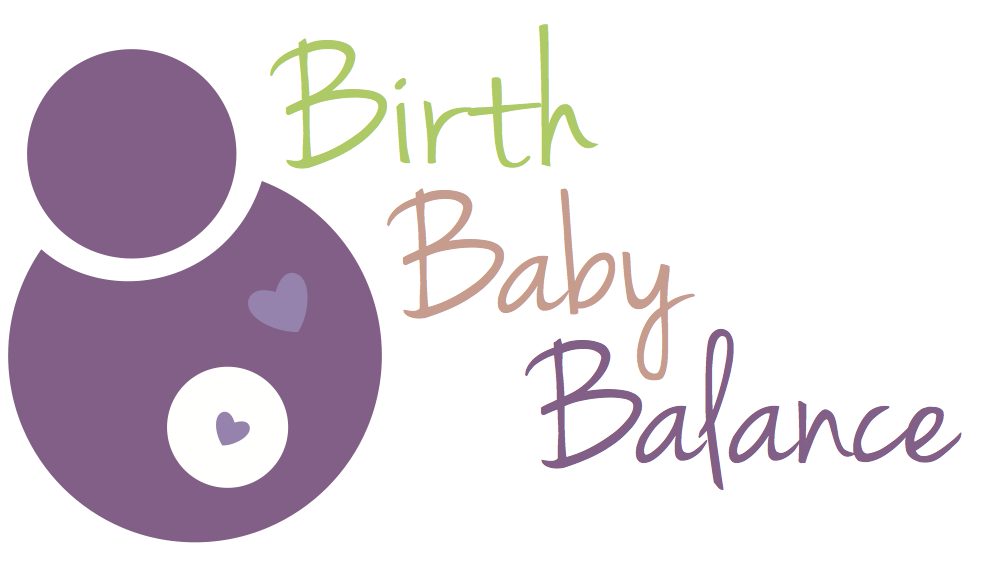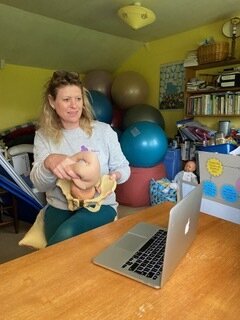Why take an online antenatal course during lockdown?
/Our new normal
When I sat down to write this blog, I was originally going to call it “Why to take an antenatal course”, and I was going to concentrate on all the reasons to attend a “normal” course - i.e. not in lockdown, where you could get out of your house and meet other expectant parents. But as I started writing, I realised that was a bit pointless, as that is not what we are all experiencing at the moment, and I want to give you information that is useful in the current situation.
Options in lockdown
So, why take an online antenatal course in lockdown, and what is available to you?
Lots of antenatal course providers have had to do a quick rethink on how they present their courses, and the good news is, you still have lots of choice. You could even say you have more choice, as you are no longer limited to a course in your locality, although I would say that, if you want to “meet” other local couples due at a similar time to you, it is still worth attending a course that can tick that box for you.
Even if the sessions are facilitated in a one to one format, it is often possible for the teacher to link up all expectant parents due within a few weeks of each other, who would otherwise have been in a group together (with their permission of course), so that they can contact each other and get to know each other before their babies are born. Creating a WhatsApp group or equivalent still has the potential to provide lots of reassurance and virtual support in the early days and weeks with your new baby, if you have been in touch with other members of the group before then, and have started to form friendships, even if you have never actually met!
Online antenatal courses are provided during lockdown
Questions, questions
If you are pregnant and due in the next few months, you will still want information about the birth and life with a newborn, and will still want the opportunity to ask questions, debunk myths, get reassurance and create a support network around you. All these things can be done with an online course.
If you join a group course, perhaps hosted on a platform such as Zoom, then you will have chances to discuss topics with others in the group, even if the internet connection can sometimes make such discussions seem a bit stilted.
If you are having a 1:1 session, then you and your partner will have the opportunity to ask the facilitator as many questions as you want to (it is sometimes easier to do this in a 1:1 setting rather than in a group), which can be particularly helpful if you have very specific circumstances e.g. you are expecting twins, or have developed gestational diabetes, or have a breech baby.
And the great thing about a 1:1 session is that you don’t have to worry about other group members thinking you are asking a “silly” question (although I can assure you that, whatever you ask in a group, someone else will be glad you were brave enough to ask, as they wanted to know the answer too!).
Teaching styles
Even if the video format means that some of the teaching styles and activities that the teacher would normally use in her classes are no longer possible (for example, getting the whole group to divide into smaller groups to do specific activities or discuss certain topics), she will still make sure these topics are covered, and may well still be able to use many of her visual aids to describe things such as the journey the baby makes through the pelvis to be born.
Where teachers like to show positive birth videos as part of their classes, this can still be done over a screen. If they like to get couples to practice breathing, relaxations and visualisations as part of their classes, this can be done even more easily and comfortably where the couples are in their own homes, as the seating may be more amenable to deep relaxation, the couples can turn off the lights, or turn off the video camera if they don’t like the thought of other people watching them when they have their eyes closed.
Postnatal support
Many courses like to provide a session (or more than one) to attend once everyone has had their baby, either in the form of a class reunion (largely social) or perhaps in a slightly more structured postnatal class, to help you get to grips with the reality of parenthood now that your baby is actually here and it is no longer just theoretical learning you are doing!
Depending on when your baby arrives, when lockdown ends, and how gradually all our lives are able to go back to “normal”, these sessions may still be able to take place as planned (perhaps for autumn/winter babies). If your baby is born in the late spring/summer, and it is either not yet possible to meet up with your group in person, or you just feel you don’t want to do that yet, it will definitely be possible to hold these sessions via video link, in much the same way as the antenatal classes were held.
You may find though, that if your teacher opted to do 1:1 classes antenatally, she switches to a group class when you’ve got your baby, so you can share and compare your experiences, as that is such an important part of validating whatever type of birth you had, and getting reassurance that you are not alone with whatever worries/concerns/challenges you are experiencing with your new baby.
Give it a go!
If you are currently pregnant, and due before the winter, I would hugely recommend signing up to a video led antenatal course, rather than doing nothing at all, or, worse still, using Dr. Google as your guide!
Find an experienced teacher, drop her a line to find out more about her online classes, and give consent for her to share your contact details with other local expectant parents who she is teaching so that you can start to create your own support network.
You could also ask her what her plans are to returning to teaching “normally”, in case this becomes a possibility during or before your course - I can just about guarantee that she will be keen to enable pregnant couples to meet up in person if at all possible, and will be thrilled if the lockdown is lifted in time to facilitate her to do this.
Sarah,
Birth Baby Balance antenatal teacher and birth doula





